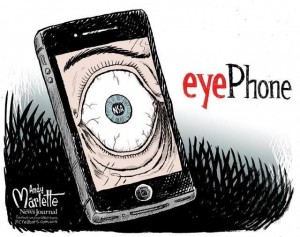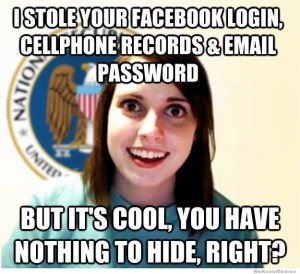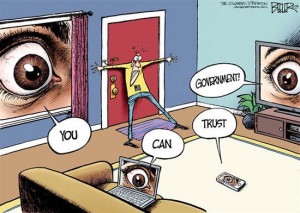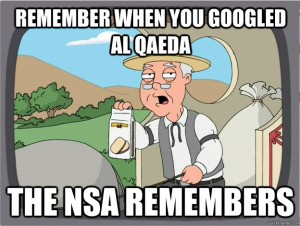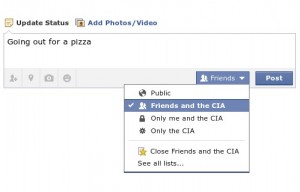FBI wants Congress to mandate backdoors in tech devices to facilitate surveillance
20 October 2014
http://www.homelandsecuritynewswire.com/dr20141020-fbi-wants-congress-to-mandate-backdoors-in-tech-devices-to-facilitate-surveillance
This article is a response to statements made by Apple and Google. They said that they would make the data customers collect on their phones and computers safer and more secure from those hacking by law enforcement, spies, and identity thieves. FBI director James Comey asks Congress to order tech companies to improve their devices with backdoors. This will make them more available to law enforcement agencies. Privacy supporters forecast that not very many in Congress will support Comey’s pursuit for better surveillance powers. Congress is not close to passing any laws that will make the products more vulnerable to hacking.
ACLU Study: St. Louis City surveillance cameras are an invasion of privacy
OCTOBER 23, 2014
http://fox2now.com/2014/10/23/aclu-study-st-louis-city-surveillance-cameras-are-an-invasion-of-privacy/
The ACLU (American Civil Liberties Union) have created a study in this article. They believe that surveillance cameras in St. Louis City are doing little to nothing to help the city fight crime. They also believe that because they are doing little to no help, that the cameras are actual so pointless that they are now invasions of privacy to citizens of the city in St. Louis. Because the ACLU believe this, they want to get rid of the surveillance cameras completely in the city of St. Louis. The city would save money and could spend the money they save on anything else.
UN Rights Expert Urges Governments To Protect Right To Privacy While Spying
10/23/2014
http://www.rttnews.com/2402409/un-rights-expert-urges-governments-to-protect-right-to-privacy-while-spying.aspx?type=gn&utm_source=google&utm_campaign=sitemap
This article talks about Ben Emmerson, the United Nations human rights expert, and how he want the Government to update their laws concerning mass surveillance of the internet for terrorism. He believes that terrorism is a huge threat to our nation and he believes that using and updating the laws for privacy and surveillance will help capture more terrorist or those who threaten other’s lives. He reminds the government that it is their right to protect the innocent citizens from those who threaten our safety. He wants the government to produce a detailed and evidence based justification to show that this system is actually working.
UN special rapporteur slams US, UK spying on Internet users
Oct 24, 2014
http://www.presstv.ir/detail/2014/10/24/383415/un-slams-west-spying-on-internet-users/
In this article, it talks about how the United Nation’s top official for counter terrorism and human rights has talked badly about the mass Internet surveillance techniques that are used by the United States and by the United Kingdom. HE goes on to describe them as a systematic interference to human rights to privacy. He also says that they are a recognizable and clear violation to these human rights. He goes on to relate how Snowden revealed how these agencies were spying on cell phone records. He warns that intelligence and the law enforcement agencies were able to inspect every internet user in countries.
Automated Mass Surveillance is Unconstitutional, EFF Explains in Jewel v. NSA
OCTOBER 24, 2014
https://www.eff.org/deeplinks/2014/10/automated-mass-surveillance-unconstitutional-eff-explains-jewel-v-nsa
The EFF, in this article, have gone to court to show that the mass surveillance on Internet use and on cell phones are one hundred percent and clearly unconstitutional. The court did not agree with the EFF. The EFF continued to show that this issue is a huge problem. They argue that this mass surveillance has an issue with the fourth amendment. The government filed for opposition to the report from September and said that the Fourth amendment has nothing to do with this mass surveillance and is irreverent. The government continues to say that the purpose of mass surveillance is for the safety and protections of the citizens.

